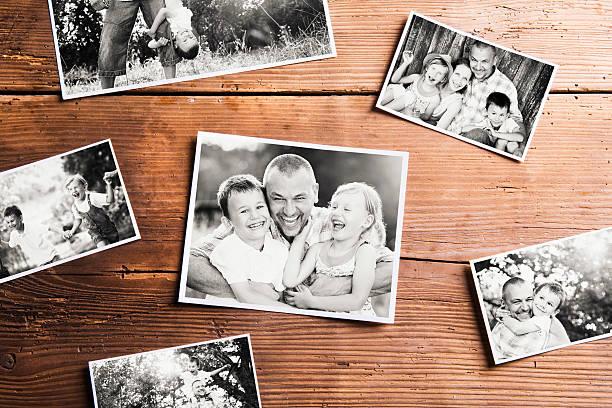Memories Over Moments: Discover Your Productivity Orientation
Lets imagine, you’re standing in Times Square on New Year’s Eve. It’s clear and chilly, but everything is perfect. Now, picture the scene again, but this time, snow is falling heavily, making the moment more dramatic, unique, and magical. Which memory would you treasure more ten years from now? Or think about this: You have a choice between a warm, sunny weekend getaway in Florida or an adventure to an ice hotel in Canada. One is relaxing and enjoyable, while the other is more out-of-the-ordinary, something you’ll always remember. Which one would you pick? These choices reveal a lot about your productivity orientation—whether you prefer enjoying the present or collecting memorable experiences to reflect on later. Curious to know where you stand? Memories Over Moments or Moments over Memories. Let’s find it out!
What Is Productivity Orientation?
Productivity orientation is a term that describes how much people focus on being productive, even when it comes to enjoying their leisure time. For highly productivity-oriented people, experiences aren’t just about enjoyment in the moment; they are also about how meaningful or memorable they will be in the future. For example, instead of choosing a simple, tasty chocolate truffle, they might go for one described as “unique and exotic” because it feels more special.
Unique vs. Pleasurable: What Do You Prefer? | Memories Over Moments
Let’s break down the two main types of experiences:
- Pleasurable Experiences: These are straightforward and enjoyable in the moment. Think of sipping a refreshing drink on a sunny beach or savoring a delicious meal at your favorite, well-known restaurant. The comfort and joy are immediate, leaving you feeling happy and satisfied.
- Memorable (or Unique) Experiences: These are extraordinary and stand out in your memory, even if they aren’t the most pleasurable in the instant. Picture spending the night in an ice hotel—it might be cold, a bit uncomfortable, or require you to bundle up in unfamiliar ways. Or imagine trying an unusual meal in a bizarre restaurant with dishes that challenge your taste buds. While these experiences may come with moments of discomfort or uncertainty, they add up to vivid, unforgettable memories that you’ll be sharing and reflecting on for years to come.
Which type of experience do you tend to prefer? Think about how your choices impact the stories you tell yourself and others.
How to Discover Your Own Productivity Orientation
Ready to find out where you stand? Here’s a simple exercise:
- Recall Your Last Vacation: Did you choose it for comfort or for uniqueness?
- Think About Your Daily Choices: Do you lean toward simple pleasures or memorable adventures?
- Assess Your Goals: Do you often think about how your experiences will look in the future, or do you live in the present?
Activity: Make a list of experiences you’ve chosen in the past year and see if they align more with enjoyment or memorability.
The Science Behind Memorable Experiences
Researchers like Keinan and Kivetz have found that people often prioritize experiences that will make lasting memories, even if those experiences are less pleasurable in the moment. This tendency can be seen in various real-life scenarios, where individuals choose the unique and the extraordinary over the simple and immediately satisfying.
For instance, in one of their studies, participants were asked to imagine spending New Year’s Eve in Times Square. While only 33% preferred snow over clear skies when considering immediate enjoyment, a whopping 83% favored snowy skies when asked to picture themselves looking back on the experience ten years later. The snowfall added an element of magic and uniqueness, even if it might have made the experience colder and less comfortable at the time.
Another example highlights the choice between a weekend vacation in sunny Florida and staying in a famous “ice hotel” in Canada. While Florida offers a warm, relaxing, and pleasurable getaway, the ice hotel stands out as a one-of-a-kind adventure. Most participants chose the ice hotel when thinking about the memories they would carry with them, even though they anticipated it might be less enjoyable compared to Florida’s beaches.
What drives this preference for memorable experiences? The researchers found that the uniqueness of an experience makes it stand out in our memories. Human memory tends to favor events that are distinctive or out of the ordinary, as these experiences are easier to recall and more satisfying to reflect on. Even if something is challenging or uncomfortable at the time—like braving the cold in an ice hotel—it gains value over time because it becomes a vivid, standout story in our mental collection.
Our brains are wired to remember extraordinary events more vividly than routine ones. This means that people are often willing to go through a bit of discomfort or sacrifice present pleasure for the reward of a long-lasting, impactful memory. In the long run, it’s these experiences that shape how we feel about the life we’ve lived and the stories we love to tell.
Final Takeaway | Memories Over Moments
Is It Better to Choose Memorable or Enjoyable Experiences? There’s no right or wrong answer. It depends on your personality, goals, and what makes you happy. Life is a collection of moments, both simple and extraordinary. Understanding your productivity orientation can help you make intentional choices about how you experience the world. Whether you lean toward savoring the present or chasing memories that will last a lifetime, there’s value in knowing what drives you.
Further insights, https://books.google.co.in/books
Read also : Luck Surface Area Explained | How to Increase Your Luck Horizon https://thebrightdelights.com/luck-surface-area-explained-how-to-increase-your-luck-horizon/
